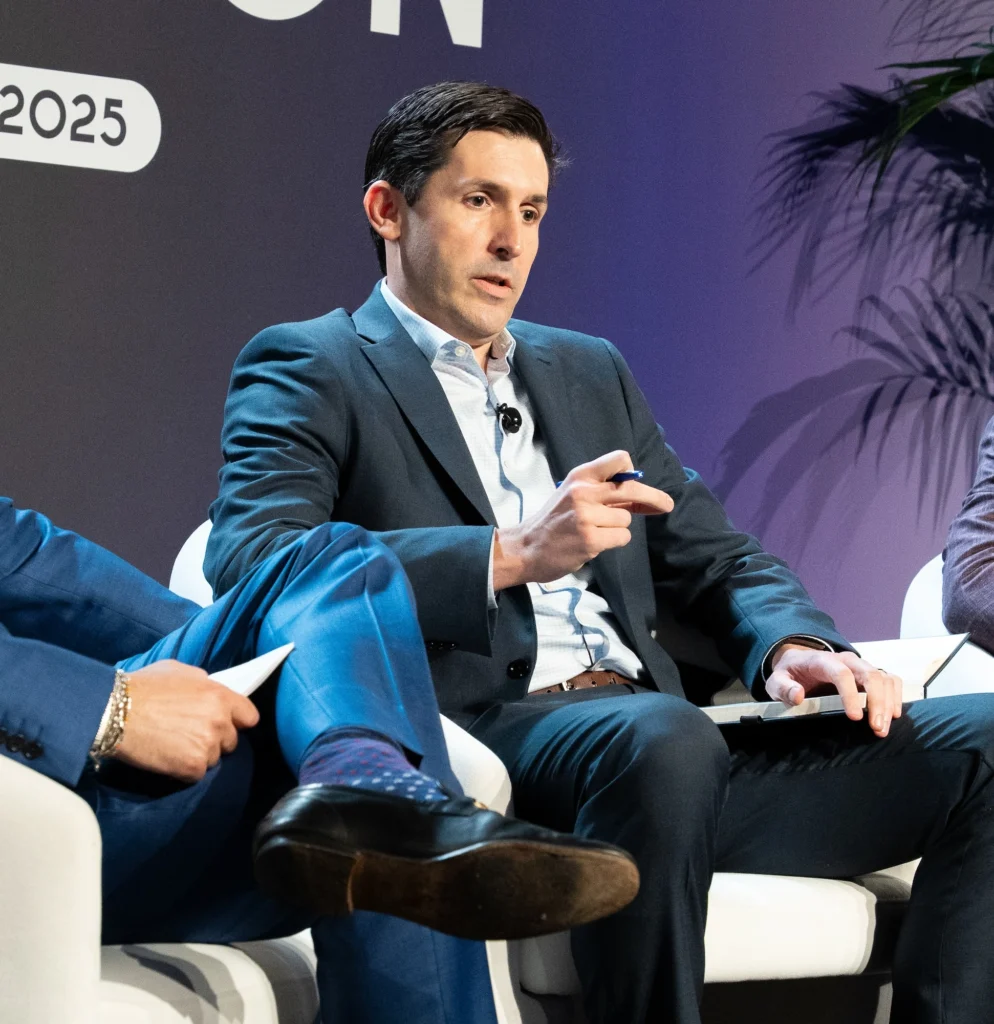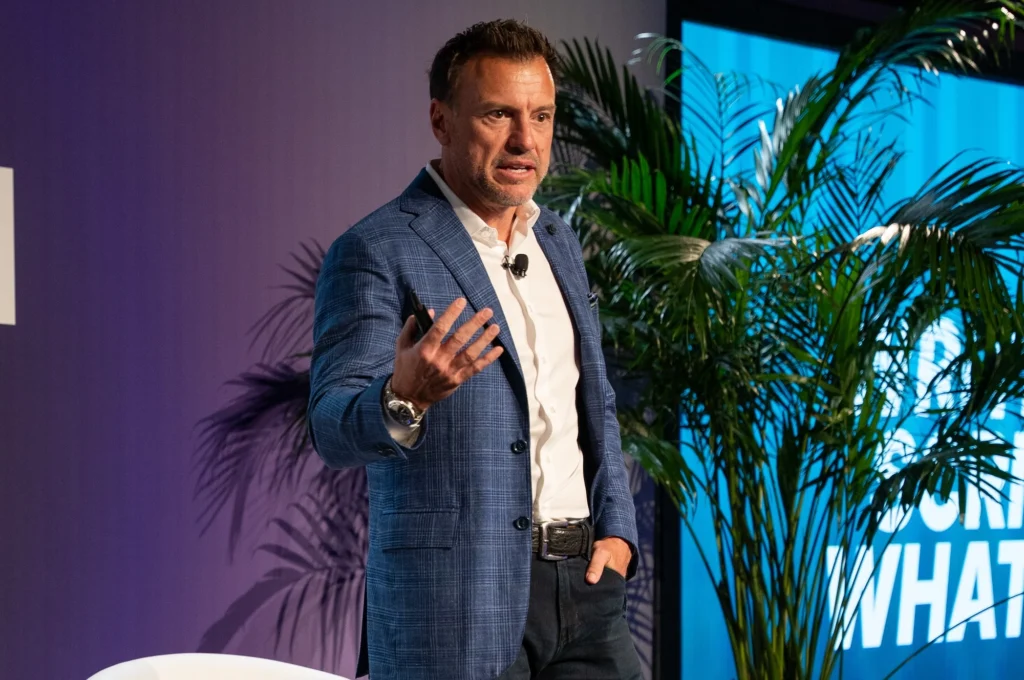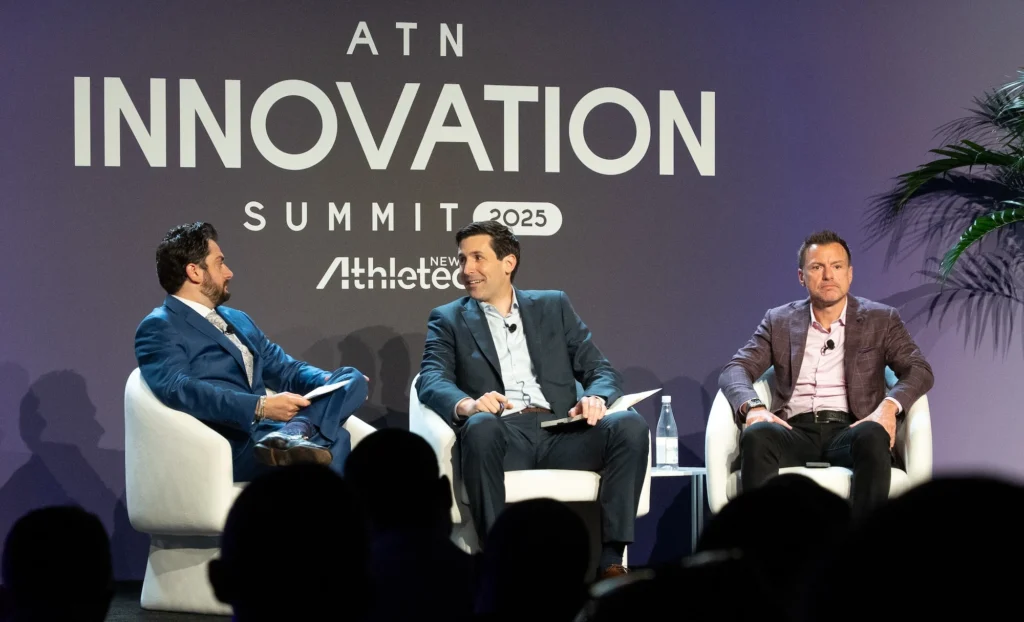Means, a special adviser to the White House, and Geisler, one of the fitness industry’s most high-powered executives, both say the timing is right to push for a bigger seat at the table in Washington, D.C.
The “fitness as medicine” movement is real, but it’s still going to take a massive collective lobbying effort before the United States government recognizes gyms, health clubs and studios as serious healthcare players.
At the ATN Innovation Summit 2025, Anthony Geisler, the CEO of Sequel Brands, and Calley Means, a special adviser to the White House, called on fitness industry leaders to do a better job at advocating on behalf of the industry and in making their voices heard in Washington, D.C. They spoke during a panel discussion moderated by Athletech News founder and CEO Edward Hertzman.
Means, who has been outspoken in his belief that the fitness industry has a “generational opportunity” to position itself as a key pillar in the preventive health movement currently sweeping through the White House, reiterated that message in front of hundreds of fitness and wellness executives during the Innovation Summit.
“The fitness industry needs to actually step up and defiantly and aggressively state that ‘we are frontline healthcare workers,’” he said.
Means, who was a lobbyist before he co-founded telehealth platform Truemed and became a White House adviser, noted that other industries are highly active on Capitol Hill while fitness essentially sits on the sidelines.
“The industries that profit from people being sick are flooding donations,” he said. “They are in D.C. all the time. The CEOs of pharmaceutical insurance companies essentially live in D.C. these days, and they are letting their voice be heard.”

Geisler, whose new fitness company Sequel Brands officially launched last month, noted that he recently attended an event at the White House for the release of the Make America Healthy Again (MAHA) report. However, he was discouraged to see that there weren’t many other fitness industry executives in attendance.
He called on his fitness industry peers to join him in future visits to D.C.
“We do need to do more; people do need to get involved,” Geisler said. “When we were there up in the White House a couple weeks ago, there (weren’t) a lot of people from the fitness industry.”
Geisler also said that he’s been in conversations with government officials about creating some type of “fitness commission” that would allow industry leaders to have a bigger voice in federal policy discussions.
“There needs to be a fitness commission, that’s made up of the leaders in the industry, that actually have a seat at the table,” he said.

It’s worth noting that organizations like the Health & Fitness Association (HFA) have been active in advocacy efforts on behalf of the fitness industry, in some cases drawing hundreds of executives to lobbying events on Capitol Hill.
Unfortunately, those efforts have yet to pay off in a big way. Earlier this month, the Senate scrapped a provision that would’ve allowed fitness purchases like gym memberships to count as tax-free healthcare expenses under HSA funds, a significant setback for the industry. The provision was rooted in the PHIT Act, a piece of fitness-as-healthcare legislation that industry stakeholders have been trying to get passed for around two decades.
While they didn’t mention the PHIT Act in their discussion, both Means and Geisler acknowledged the reality that things are slow to change in Washington, and it takes a lot of effort to get new policies put into place.
“I liken it to pounding your head against the wall every day,” Means said. “This is going to change with thousands of micro-changes, with thousands of pieces of engagement. And I just think we have to understand how important this momentum we have right now in the country is, that people are talking about the root cause of why we’re sick. … We’ve got to make our voice be heard and continue this message over the coming years that fitness is at the center of health, and that is going to lead to policies.”
Geisler offered the perspective of someone who’s been involved in the fitness industry for over two decades.
“We’ve never had this loud of a voice,” he said. “We’ve never been heard this much, and so we need to push on that gas.”
This article is based on a live discussion held during the ATN Innovation Summit 2025, a two-day event dedicated to the future of fitness and wellness. See here for more Innovation Summit coverage.



